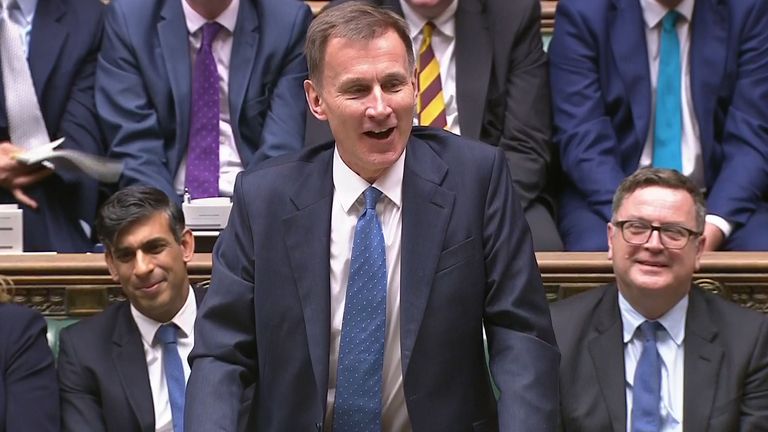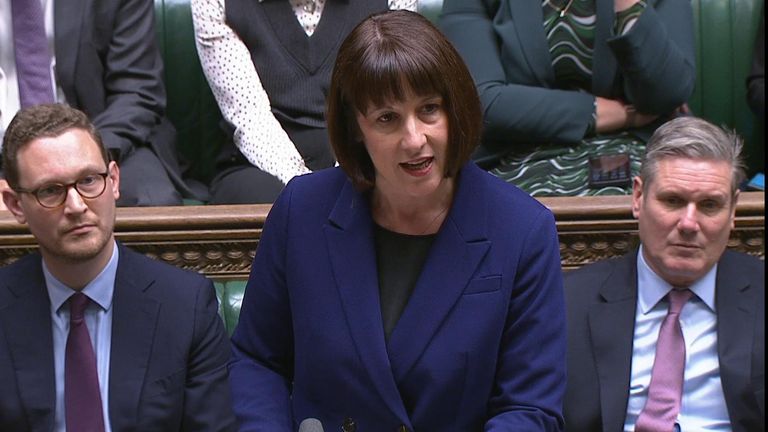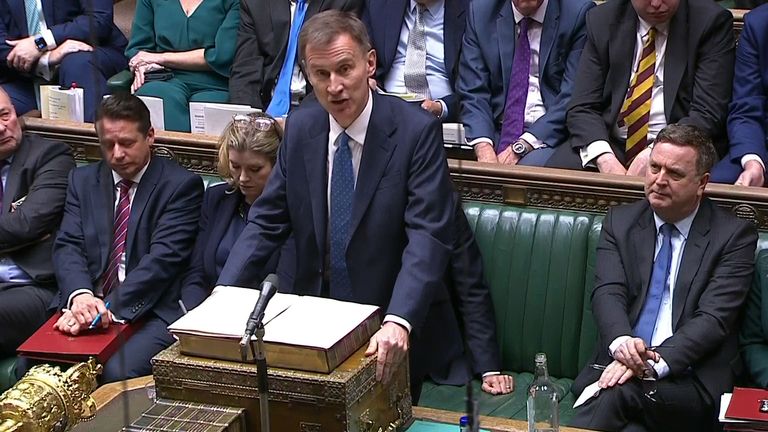
The pre-publicity for the chancellor’s autumn statement proclaimed it would “turbocharge” economic growth, a billing that indicates a shortage of original metaphors in the Treasury press office as well as a tendency to hyperbole.
With the Office for Budget Responsibility (OBR) downgrading its forecast, the UK economy is plainly not about to set any speed records, leaving Jeremy Hunt’s options fairly constrained.
But from the white vans of the self-employed to the diggers and cranes of industry, there is plenty for the drivers of the economy to welcome in a package of 110 “pro-growth” measures, many of them tax breaks.
Politics latest: All the reaction to the chancellor’s autumn statement
The package is desperately needed, as much for the credibility of the government as an economy currently failing to meet personal or public spending ambitions.
From Brexit to the mini-budget, HS2 to net-zero targets, Conservative administrations have consistently chipped away at business confidence, the uncertainty and inconsistency undermining stability, the single most important asset a country can offer investors.
The most significant and expensive measure here was intended to address that point directly.
“Full-expensing” allows companies to claim back 100% of investment in plant, machinery and IT equipment against corporation tax, amounting to a tax break of £250,000 on every £1m spent.
Hitherto temporary and due to expire in 2026, making it permanent will allow companies to plan for the medium and long term at a cost the Treasury of £10bn.
It was the biggest ask of the big business groups, and they were duly grateful.
Read more:
Key announcements from chancellor at a glance
Calculator: Are you worse or better off?
Rain Newton-Smith of the newly rehabilitated CBI said it would “help keep the UK at the top table internationally for investment incentives” – and Stephen Phipson, chief executive of manufacturers group Make UK, called it “a bold statement” that would help address the “Achilles’ heel” of uncertainty.
There were specific measures for the energy industry to help deliver the low-carbon transition, with a pledge to speed up planning for grid expansion, compensate local communities affected, and speed up connections required to link renewable power to consumers who need it.
There were also new investment pots for innovative life science and technology industries as well as car and aerospace companies working on green technologies.
Small business groups were largely happy, too. National insurance cuts for the self-employed could be worth £500 to small traders, and may repair some of the resentment at being hard done by the Treasury during COVID.
The approval for Mr Hunt’s measures is not universal however, with a stark dividing line among those, largely in the services sector, impacted by business rates.
Rates have been frozen or reduced for three years since the pandemic, a position that has now begun to unwind.
In a win for the hospitality industry, a 75% reduction for smaller premises with a rateable value beneath £110,000 was rolled over for another year, offsetting some of the cost of the increased minimum wage on a sector in which pay accounts for 60% of costs.
There was no similar respite for larger companies however, with Mr Hunt announcing that rates, frozen for three years at a cost of £14.5bn, will now increase in line with inflation.
The decision was pilloried by the British Retail Consortium, which represents the major supermarkets among others, which called it a sell-out and said it would increase inflationary pressures.
The answer, almost everyone in business agrees, is long-promised and long-overdue reform of the rates system – precisely the sort of real long-term reform this government and chancellor has run out of time to consider.















